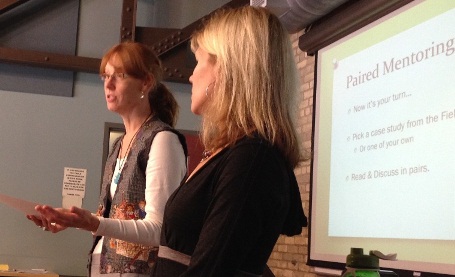Joy Kratzke Johnson (B.S. ’52), who completed her 25th New York City Marathon on Nov. 3, died at the age of 86 the next day. A Minnesota native, Johnson was a physical education and math teacher in Duluth for several years before moving to California’s Bay Area, where she continued to teach and coach track, volleyball, swimming.
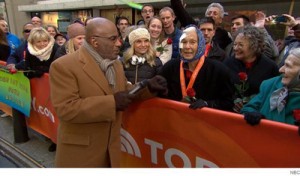 The oldest female finisher in this year’s marathon, Johnson fell near mile 16 and received cuts on her face and head, but she got up and finished the race. The next day, she was interviewed by Al Roker on the “Today Show” (see photo). Later she passed away in her hotel room.
The oldest female finisher in this year’s marathon, Johnson fell near mile 16 and received cuts on her face and head, but she got up and finished the race. The next day, she was interviewed by Al Roker on the “Today Show” (see photo). Later she passed away in her hotel room.
A well known, dedicated runner, Johnson did not begin the sport until 1985 after retiring from teaching. She started running half-marathons “in the freezing February cold of her native Minnesota,” according to a Wall Street Journal story.
In June this year, Johnson was the oldest runner in Grandma’s Marathon in Duluth. Before she came back to Minnesota for that race, she wrote this in a letter to the University alumni magazine:
I graduated from the University of Minnesota in 1952 and hardly a day goes by when I don’t think and/or comment about the positive things I saw about the University of Minnesota. My education there brought me to California. I went to the placement bureau at Cal in Berkeley and within a day had a job teaching. I did not have my credentials with me, but when I told the superintendent of the Campbell schools that I graduated from the U of M he hired me.
I have lived in the San Jose area ever since and upon my retirement started to run and now do marathons. When I come to Minnesota next summer to visit family and run Grandma’s Marathon, I plan to come by the tree at the end of the Washington Avenue Bridge and add an old pair of running shoes to the tree …
Johnson had become a celebrity in the running community for her training tenacity and commitment to finish every race. Chris Weiller, from the New York Road Runners, said Johnson was a member of “the prestigious ‘streakers’ — a tightknit group of runners who have completed 15 or more consecutive New York City Marathons,” according to a San Jose Mercury News story.
“We’re just so sad to hear about her passing,” Weiller said in the story. “She was an inspiration to everyone. We’re really feeling her loss here.”
Johnson’s husband, Dr. Newell Johnson, died in 1999, but several of her family members were with her in New York for the race.
“She considered everyone her friend,” her daughter, Diana Boydston, told TODAY.com. “I think she would be happy with this chain of events: to run her beloved New York marathon, talk to her buddy Al, be there with her sister Faith. She told everyone she loved them before the race, and she was at peace.”
Johnson is survived by three of her four children and six grandchildren. Burial and services are being planned for her in Waconia, Minnesota.
See more on Joy Johnson in this Star Tribune story.
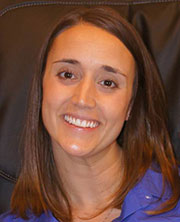 Institute of Child Development alumna Rebecca Shlafer (Ph.D. 2010), recently spoke to KARE 11 about her research on the doula program, Isis Rising, in the women’s prison at Shakopee, MN. The program pairs a doula (a trained birth coach) with a pregnant inmate, which allows the inmate to receive delivery room support and prenatal and postnatal support that helps to foster not only a better, healthier birth experience and a healthier baby, but potentially a stronger start to a better relationship between the mother and her baby, which the program hopes will also foster healthy moms who don’t return to prison. As one pregnant inmate put it: “I believe this is my chance. I’m going to have another kid. I need to get it together.”
Institute of Child Development alumna Rebecca Shlafer (Ph.D. 2010), recently spoke to KARE 11 about her research on the doula program, Isis Rising, in the women’s prison at Shakopee, MN. The program pairs a doula (a trained birth coach) with a pregnant inmate, which allows the inmate to receive delivery room support and prenatal and postnatal support that helps to foster not only a better, healthier birth experience and a healthier baby, but potentially a stronger start to a better relationship between the mother and her baby, which the program hopes will also foster healthy moms who don’t return to prison. As one pregnant inmate put it: “I believe this is my chance. I’m going to have another kid. I need to get it together.”

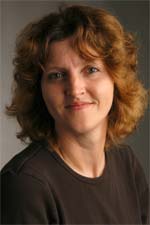
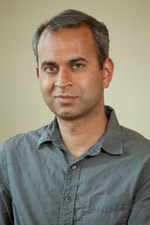 “Our empirical evaluation of BrainU finds that it improved teacher understanding of neuroscience and confidence in teaching neuroscience,” said Varma (right). “This understanding translated to improved classroom instruction compared to control teachers. There was more evidence of inquiry-based learning on the part of teachers and of students engaging in higher-order thinking, displaying greater depth of knowledge, making deeper connections to the world, and engaging in more substantive conversations with teachers.”
“Our empirical evaluation of BrainU finds that it improved teacher understanding of neuroscience and confidence in teaching neuroscience,” said Varma (right). “This understanding translated to improved classroom instruction compared to control teachers. There was more evidence of inquiry-based learning on the part of teachers and of students engaging in higher-order thinking, displaying greater depth of knowledge, making deeper connections to the world, and engaging in more substantive conversations with teachers.”
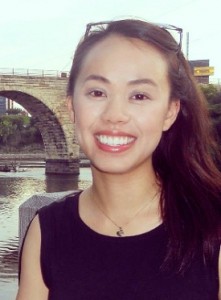
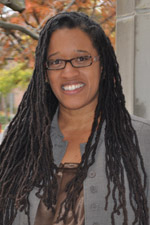
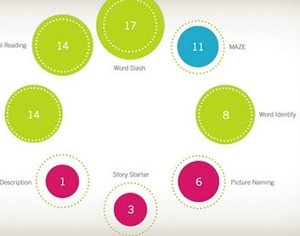
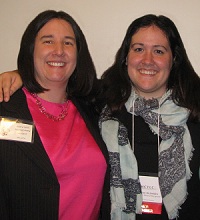
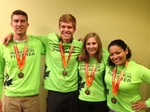

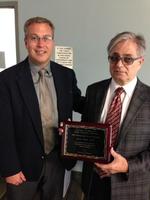
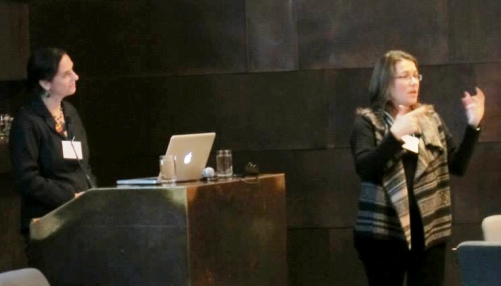
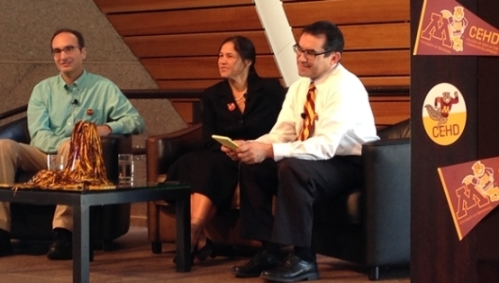
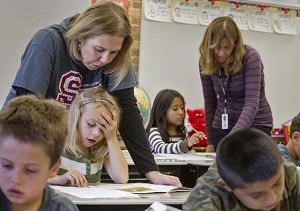
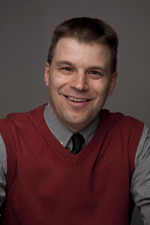 Assistant Professor
Assistant Professor 